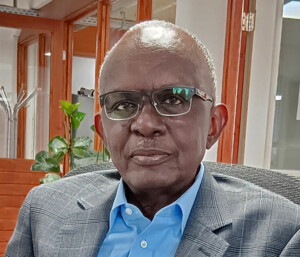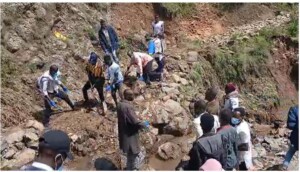Tigray conflict: Ethiopian refugees pour into Sudan
Thousands of Ethiopians continue to flow across the border into Sudan, fleeing the ongoing the ongoing conflict in Ethiopia’s restive Tigray region. Sudan’s Humanitarian Aid Commission (HAC) predicts the arrival of about 20,000 refugees from Ethiopia in the border areas in El Gedaref and Kassala.
 Ethiopian refugees in Um Rakouba camp in El Gedaref (SUNA)
Ethiopian refugees in Um Rakouba camp in El Gedaref (SUNA)
Thousands of Ethiopians continue to flow across the border into Sudan, fleeing the ongoing the ongoing conflict in Ethiopia’s restive Tigray region. Sudan’s Humanitarian Aid Commission (HAC) predicts the arrival of about 20,000 refugees from Ethiopia in the border areas in El Gedaref and Kassala.
The authorities in Kassala began to put in place the necessary arrangements and readiness to receive the wave of Ethiopian refugees arriving in Wad El Helew locality.
The Kassala Commissioner of Refugees, Khaled Mahmoud, reported that the area of Hamdayit area was chosen to shelter the refugees temporarily, and then the refugees will be transported to Shajarab, which needs to equip the refugee housing.
Mahmoud stressed the importance of the security examination due to the presence of soldiers among the refugees, and they will be deported to other locations in agreement with the security services.
UNHCR
The representative of the UN High Commissioner for Refugees (UNHCR) at the Khashm El Girba office, Mohammad Rafiq Nasry, announced the commission’s commitment to provide special flights in addition to the vehicles to transport Ethiopian refugees directly to the Um Rakouba camp, which the government of El Gedaref agreed to open.
The Governor of El Gedaref, Suleiman Ali, called on the international community and the federal government on Wednesday to stand with the state to address the issue of Ethiopian refugees fleeing from Tigray region as a result of the war that has led to the displacement of thousands of Ethiopians.
“If the influx continues at this pace, within days we will be dealing with more than 20,000 refugees, a number that exceeds the current capabilities of the state,” he said.
Regional security
In Khartoum, the Prime Minister Abdallah Hamdok stressed the importance of regional security and work to stop the conflict in Ethiopia as soon as possible and return to peaceful negotiations and avoiding wars.
Hamdok’s words came during his meeting in his office at the Council of Ministers yesterday, with Eritrean Foreign Minister Osman Saleh, and the Eritrean Presidential Envoy, Yamani Gubrab, which dealt with ways to strengthen regional security in light of the conflict in the Ethiopian Tigray region, and its implications for the region’s security.
The meeting insisted on the importance of the unity of the region and defusing the conflict in the countries of the region. The official Sudan News Agency (SUNA) reports that the Eritrean Foreign Minister and Envoy met in the same context with the head of the Sovereign Council, Lt Gen Abdelfattah El Burhan, at the Republican Palace.
‘Wisdom and restraint’
Sudan has called on all warring parties in Ethiopia “to appeal to wisdom and restraint” to find a peaceful solution to the ongoing conflict in the Tigray Region.
At a meeting on Monday at the Republican Palace in Khartoum, headed by Lt Gen Abdelfattah El Burhan, the Security and Defence Council expressed grave concerns about the possible consequences of the conflict in Ethiopia.
Tigray rebels
The Tigray region has seen tensions rise as the Tigray People’s Liberation Front (TPLF) rebelled against Ethiopia’s federal army and its leadership in Addis Ababa.
The TPLF held local elections in September but these were considered illegal by the government in Addis Ababa, which unleashed an ongoing stand-off between the rebel movement and the government.
Last week, the Government of Ethiopia declared a State of Emergency for six months and the launch of a military operation in the opposition-controlled Tigray region, located at the borders of Eritrea and Sudan.
The Prime Minister’s office also ordered the army to take offensive measures against the TPLF and accused it of attacking the offices of the Defence Forces Northern Command stationed in Mekele, the capital of Tigray, with the aim of seizing artillery and military equipment there.
Radio Dabanga’s editorial independence means that we can continue to provide factual updates about political developments to Sudanese and international actors, educate people about how to avoid outbreaks of infectious diseases, and provide a window to the world for those in all corners of Sudan. Support Radio Dabanga for as little as €2.50, the equivalent of a cup of coffee.












 and then
and then